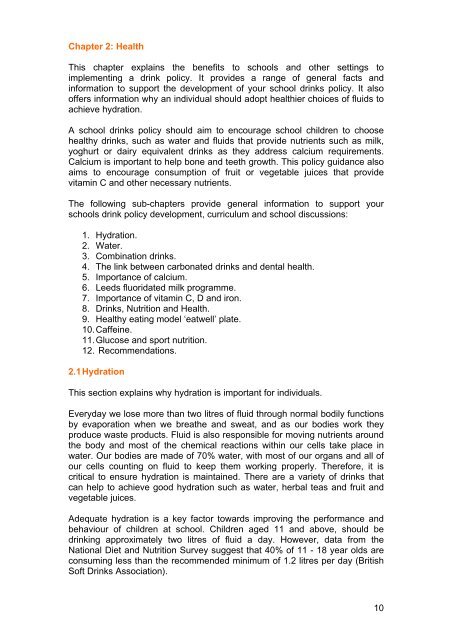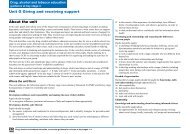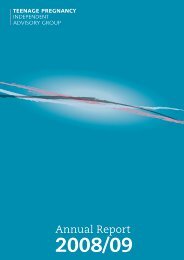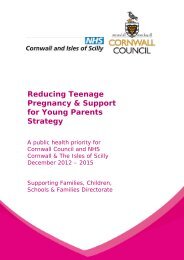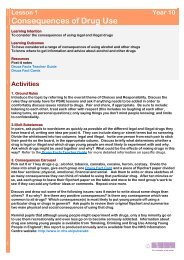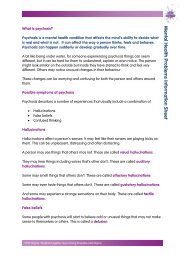School drinks policy guidance March 2010 - Cornwall Healthy Schools
School drinks policy guidance March 2010 - Cornwall Healthy Schools
School drinks policy guidance March 2010 - Cornwall Healthy Schools
You also want an ePaper? Increase the reach of your titles
YUMPU automatically turns print PDFs into web optimized ePapers that Google loves.
Chapter 2: Health<br />
This chapter explains the benefits to schools and other settings to<br />
implementing a drink <strong>policy</strong>. It provides a range of general facts and<br />
information to support the development of your school <strong>drinks</strong> <strong>policy</strong>. It also<br />
offers information why an individual should adopt healthier choices of fluids to<br />
achieve hydration.<br />
A school <strong>drinks</strong> <strong>policy</strong> should aim to encourage school children to choose<br />
healthy <strong>drinks</strong>, such as water and fluids that provide nutrients such as milk,<br />
yoghurt or dairy equivalent <strong>drinks</strong> as they address calcium requirements.<br />
Calcium is important to help bone and teeth growth. This <strong>policy</strong> <strong>guidance</strong> also<br />
aims to encourage consumption of fruit or vegetable juices that provide<br />
vitamin C and other necessary nutrients.<br />
The following sub-chapters provide general information to support your<br />
schools drink <strong>policy</strong> development, curriculum and school discussions:<br />
1. Hydration.<br />
2. Water.<br />
3. Combination <strong>drinks</strong>.<br />
4. The link between carbonated <strong>drinks</strong> and dental health.<br />
5. Importance of calcium.<br />
6. Leeds fluoridated milk programme.<br />
7. Importance of vitamin C, D and iron.<br />
8. Drinks, Nutrition and Health.<br />
9. <strong>Healthy</strong> eating model ‘eatwell’ plate.<br />
10. Caffeine.<br />
11. Glucose and sport nutrition.<br />
12. Recommendations.<br />
2.1 Hydration<br />
This section explains why hydration is important for individuals.<br />
Everyday we lose more than two litres of fluid through normal bodily functions<br />
by evaporation when we breathe and sweat, and as our bodies work they<br />
produce waste products. Fluid is also responsible for moving nutrients around<br />
the body and most of the chemical reactions within our cells take place in<br />
water. Our bodies are made of 70% water, with most of our organs and all of<br />
our cells counting on fluid to keep them working properly. Therefore, it is<br />
critical to ensure hydration is maintained. There are a variety of <strong>drinks</strong> that<br />
can help to achieve good hydration such as water, herbal teas and fruit and<br />
vegetable juices.<br />
Adequate hydration is a key factor towards improving the performance and<br />
behaviour of children at school. Children aged 11 and above, should be<br />
drinking approximately two litres of fluid a day. However, data from the<br />
National Diet and Nutrition Survey suggest that 40% of 11 - 18 year olds are<br />
consuming less than the recommended minimum of 1.2 litres per day (British<br />
Soft Drinks Association).<br />
10


